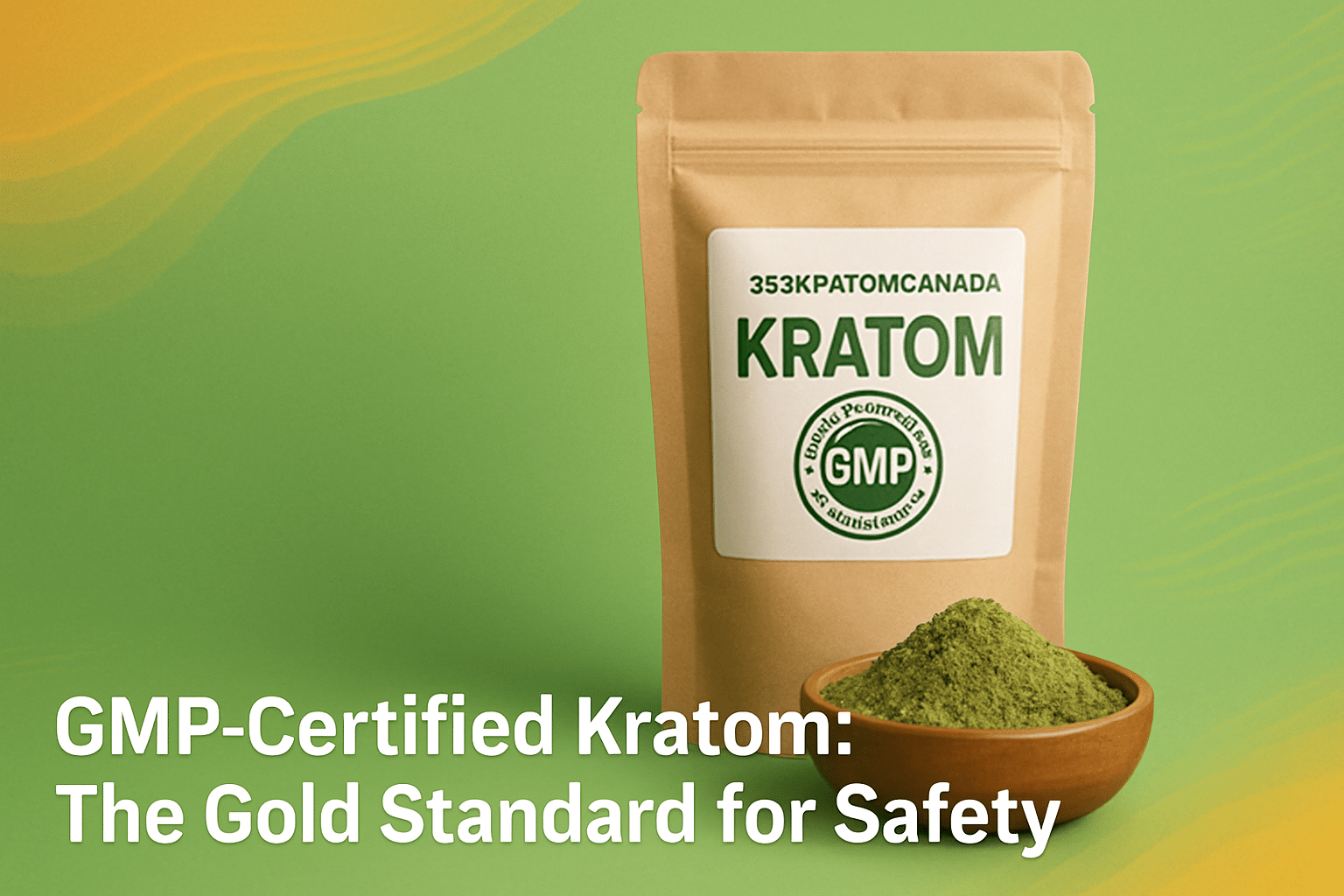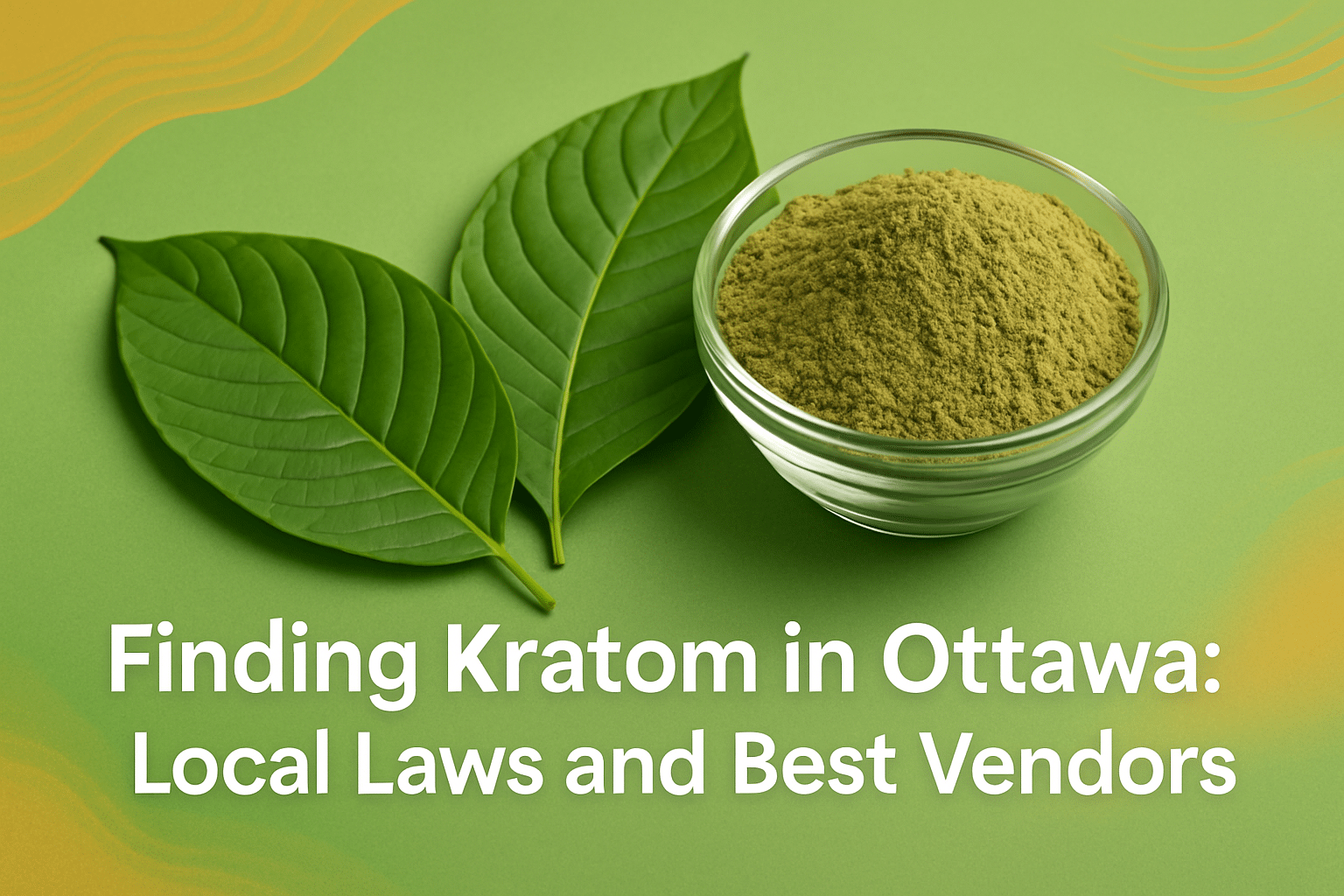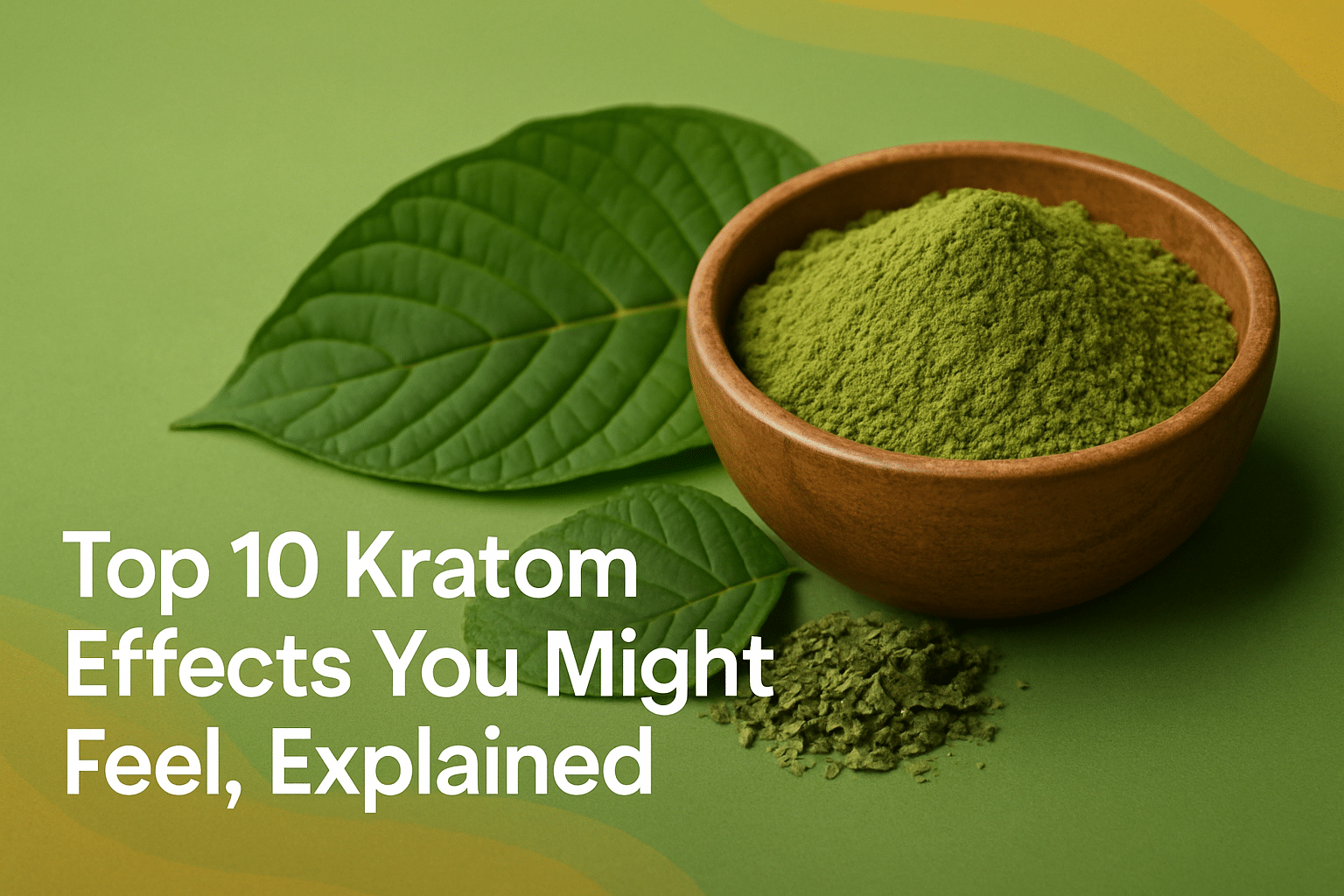When considering kratom products for research and botanical purposes, the safety and quality standards can vary dramatically between suppliers. Recent studies reveal that contamination issues affect a significant portion of unregulated kratom samples, making certification standards more crucial than ever for Canadian consumers seeking reliable botanical products.
GMP certified kratom represents the gold standard in quality assurance for botanical supplements. This certification ensures that products meet stringent manufacturing and testing requirements established by regulatory authorities. For Canadians exploring kratom for research, aromatic, or examination purposes, understanding these certification standards becomes essential for making informed decisions about product quality and safety.
The certification process involves comprehensive testing protocols that screen for contaminants, verify alkaloid content, and ensure consistent potency across batches. These standards provide peace of mind for consumers while supporting the development of a trustworthy kratom market in Canada.
Understanding GMP Certification Standards for Kratom
What GMP Certification Means for Botanical Products
Good Manufacturing Practice (GMP) certification establishes comprehensive quality control standards for botanical products like kratom. These standards cover every aspect of production, from raw material sourcing to final packaging and distribution.
The certification process requires facilities to implement strict quality management systems. GMP standards for natural health products in Canada require site licensing and quality assurance, with over 90% compliance rate reported in 2022 audits. This high compliance rate demonstrates the commitment to maintaining product integrity.
For kratom products specifically, GMP certification ensures that botanical materials undergo proper identification, testing, and handling procedures. The standards also mandate documentation systems that track products from source to consumer, creating accountability throughout the supply chain.
Required Testing Protocols and Quality Controls
GMP certified kratom must pass through extensive testing protocols before reaching consumers. These protocols examine multiple quality parameters to ensure product safety and consistency.
The testing requirements include identity verification, purity analysis, strength assessment, and composition verification. FDA GMP regulations mandate testing for identity, purity, strength, and composition, with non-compliance leading to 25% of recalls in the US dietary supplement sector in 2021. This statistic highlights the importance of proper testing protocols.
Quality control measures also include environmental monitoring, equipment calibration, and personnel training requirements. These comprehensive protocols help prevent contamination and ensure that each batch meets established specifications for botanical products.
Regulatory Compliance in Canadian Markets
The Canadian regulatory landscape for natural health products emphasizes GMP compliance as a cornerstone of product safety. Health Canada oversees these regulations to protect consumers and maintain market integrity.
Natural health product manufacturers must obtain proper licensing and demonstrate ongoing compliance with GMP standards. In Canada, natural health product GMP compliance reached 85% in 2020 inspections by Health Canada. This compliance rate reflects the regulatory framework’s effectiveness in maintaining quality standards.
For kratom products, compliance involves regular inspections, documentation reviews, and corrective action plans when necessary. These regulatory measures support consumer confidence while encouraging industry best practices across the botanical supplement sector.
Benefits of Choosing GMP Certified Kratom Products
Enhanced Safety Through Contamination Testing
GMP certified kratom products undergo rigorous contamination screening that significantly reduces health risks associated with botanical consumption. This testing identifies harmful microorganisms, chemicals, and other contaminants that could pose safety concerns.
Microbial contamination represents a primary safety concern for unregulated kratom products. A 2019 US study found microbial contamination in 21% of unregulated kratom samples, highlighting the safety benefits of GMP testing. This contamination can include dangerous bacteria, fungi, and other pathogens that proper testing protocols identify and eliminate.
The testing also screens for heavy metals, pesticide residues, and other chemical contaminants that may accumulate during cultivation or processing. GMP facilities implement strict environmental controls and testing procedures to prevent these contaminants from reaching finished products.
Consistent Potency and Alkaloid Profiles
Alkaloid consistency represents a critical benefit of choosing GMP certified kratom products. These standardized testing protocols ensure reliable alkaloid concentrations across different batches and production runs.
Without proper standardization, alkaloid content in kratom can vary substantially between batches. Standardized alkaloid testing under GMP ensures less than 5% variation in potency, as per a 2022 international herbal product quality report. This consistency allows researchers to conduct more reliable studies and examinations.
The alkaloid profile testing typically includes mitragynine and 7-hydroxymitragynine analysis, which are the primary active compounds in kratom. GMP facilities use validated analytical methods to quantify these alkaloids accurately, providing detailed certificates of analysis with each batch.
Traceability and Batch Documentation
GMP certification requires comprehensive documentation systems that track products throughout the entire production process. This traceability provides valuable information about sourcing, processing, and quality control measures for each batch.
The documentation includes detailed records of raw material testing, processing parameters, equipment maintenance, and final product analysis. Research shows that proper batch documentation supports product recalls when necessary and helps identify potential quality issues before they affect consumers.
Traceability systems also enable suppliers to provide detailed information about product origins, harvest dates, and processing methods. This transparency builds consumer confidence and supports informed decision-making about kratom quality testing standards.
How to Identify Authentic GMP Kratom Certification
Verification Methods for GMP Claims
Verifying authentic GMP certification requires careful examination of supplier credentials and documentation. Not all claims of certification represent legitimate GMP compliance, making verification essential for consumers.
Start by requesting certification documents directly from suppliers. Authentic GMP certification involves third-party auditing and official documentation that suppliers should readily provide. Legitimate suppliers welcome these requests and provide detailed certification information.
Check for specific certification body information, audit dates, and scope of certification coverage. Authentic certificates include detailed information about the certifying organization, audit procedures, and compliance verification methods used during the certification process.
Red Flags to Avoid When Shopping
Several warning signs indicate potentially fraudulent or inadequate GMP claims that consumers should recognize and avoid when selecting kratom products.
Vague or unsubstantiated quality claims represent common red flags in the kratom market. Consumer Reports guidance emphasizes the importance of avoiding suppliers who make exaggerated claims without proper documentation. Legitimate GMP certified kratom suppliers provide specific testing information and avoid making therapeutic claims.
Other red flags include unusually low prices, lack of contact information, missing batch numbers, and absence of certificates of analysis. Suppliers who cannot provide detailed testing information or refuse to discuss their quality control procedures should raise immediate concerns.
Questions to Ask Your Kratom Supplier
Key questions help evaluate supplier credibility and GMP compliance:
-
Can you provide current GMP certification documents and audit reports?
-
What specific testing protocols do you use for contamination screening?
-
How do you verify alkaloid content analysis and maintain batch consistency?
-
What is your procedure for handling failed test results or quality issues?
NSF International guidance suggests that reputable suppliers should answer these questions thoroughly and provide supporting documentation. Suppliers who deflect these inquiries or provide vague responses may lack proper certification.
Additional questions should cover storage conditions, shipping procedures, and customer support availability. Legitimate suppliers maintain transparent communication and provide detailed information about their quality assurance programs.
Lab Testing Requirements for Certified Kratom
Heavy Metals and Microbial Contamination Screening
GMP certified kratom requires comprehensive screening for heavy metals and microbial contamination to ensure product safety. These tests identify potentially harmful substances that could pose health risks to consumers.
Heavy metal testing typically screens for lead, mercury, cadmium, and arsenic, which can accumulate in botanical products through environmental contamination. A 2021 analysis in the US detected heavy metals exceeding limits in 42% of tested kratom samples. This statistic demonstrates why proper screening becomes essential for product safety.
Microbial testing identifies bacteria, yeast, mold, and other microorganisms that could indicate poor handling or storage conditions. GMP facilities implement strict environmental controls and testing procedures to prevent microbial contamination throughout the production process.
Alkaloid Content Analysis and Verification
Alkaloid testing represents a crucial component of GMP certified kratom quality assurance programs. These tests verify the presence and concentration of active compounds while ensuring consistency between batches.
The primary alkaloids tested include mitragynine and 7-hydroxymitragynine, which are considered the main active components in kratom leaves. Alkaloid variability in kratom can reach 50% without standardization, reduced to under 10% with GMP verification per a 2020 Thai study. This standardization supports more reliable research and examination purposes.
Testing methods typically use high-performance liquid chromatography (HPLC) or similar analytical techniques to quantify alkaloid concentrations accurately. GMP facilities maintain validated testing procedures and equipment calibration to ensure reliable results across all product batches.
Pesticide and Chemical Residue Testing
Comprehensive chemical residue testing screens for pesticides, herbicides, and other agricultural chemicals that may remain on kratom leaves after cultivation and processing.
Testing protocols examine multiple chemical categories:
-
Organophosphate pesticides
-
Carbamate compounds
-
Organochlorine residues
-
Herbicide residues
Pesticide residues were found in 15% of herbal imports to Europe in 2019, underscoring GMP testing needs. This contamination can occur during cultivation or post-harvest processing if proper controls aren’t maintained.
GMP facilities implement strict testing protocols that screen for hundreds of potential chemical residues. These tests use sophisticated analytical equipment to detect even trace amounts of contamination that could affect product safety or quality.
Choosing Premium GMP Certified Kratom in Canada
Trusted Suppliers and Quality Indicators
Selecting reliable suppliers for GMP certified kratom requires careful evaluation of multiple quality indicators and business practices. Canadian consumers benefit from focusing on suppliers who demonstrate consistent commitment to quality and transparency.
Look for suppliers who provide detailed product information, including strain origins, processing methods, and testing procedures. Health Canada regulations for natural health products emphasize the importance of proper documentation and quality assurance.
Quality indicators include batch-specific certificates of analysis, clear labeling with botanical names, and responsive customer service. Reputable suppliers maintain consistent inventory, avoid stock shortages, and provide detailed information about their sourcing and quality control procedures.
Understanding Certificates of Analysis
Certificates of analysis (COA) provide essential documentation that verifies gmp for botanical supplements testing and quality control measures. These documents contain detailed information about each product batch and testing results.
A comprehensive COA should include testing dates, analytical methods used, acceptance criteria, and specific test results for all quality parameters. Certificates of analysis are required for 100% of licensed natural health products in Canada since 2004 regulations. This requirement ensures that consumers receive detailed quality information.
Key COA components include:
-
Batch identification numbers
-
Testing laboratory information
-
Microbial contamination results
-
Heavy metals analysis
-
Alkaloid content verification
-
Pesticide residue screening results
Storage and Handling Best Practices
Proper storage and handling practices help maintain the quality of GMP certified kratom products after purchase. These practices preserve alkaloid content and prevent contamination during storage.
Store kratom products in cool, dry conditions away from direct sunlight and moisture. FDA CGMP regulations emphasize the importance of proper storage conditions for maintaining product integrity.
Use airtight containers to prevent moisture absorption and contamination. Label containers with purchase dates and batch numbers to track product age and facilitate identification if quality issues arise.
Storage recommendations:
-
Temperature below 25°C (77°F)
-
Humidity levels under 60%
-
Protection from light exposure
-
Sealed containers to prevent contamination
Frequently Asked Questions
What makes kratom GMP certified and why does it matter?
GMP certification requires kratom products to meet strict manufacturing and testing standards established by regulatory authorities. This certification ensures contamination screening, alkaloid verification, and consistent quality controls throughout production. The certification matters because it significantly reduces safety risks and provides reliable quality assurance for consumers.
How can I verify if my kratom supplier truly has GMP certification?
Request current certification documents directly from your supplier, including audit reports and third-party verification information. Legitimate GMP certified kratom suppliers readily provide these documents and detailed testing procedures. Look for specific certification body information, audit dates, and comprehensive scope coverage in the documentation.
What specific tests should GMP certified kratom undergo?
Comprehensive testing should include microbial contamination screening, heavy metals analysis, pesticide residue testing, and alkaloid content verification. These kratom contamination testing methods identify potential safety hazards and ensure consistent potency. Each batch should come with certificates of analysis documenting all test results and acceptance criteria.
Are there differences in GMP standards between different countries?
While core GMP principles remain consistent globally, specific requirements can vary between regulatory jurisdictions. Canadian regulations focus on natural health product standards, while other countries may have different emphasis areas. However, reputable suppliers often exceed minimum requirements to meet international quality standards.
How much more expensive is GMP certified kratom compared to regular products?
GMP certified kratom typically costs 15-30% more than unregulated products due to comprehensive testing, quality controls, and certification expenses. However, this investment provides significant value through enhanced safety, consistent potency, and reliable quality assurance. The additional cost helps ensure product integrity and consumer protection.
What should I look for in certificates of analysis for kratom products?
Look for batch-specific testing dates, detailed analytical methods, acceptance criteria, and specific results for all quality parameters. Comprehensive certificates should include microbial testing, heavy metals analysis, alkaloid content, and pesticide screening. The testing laboratory information and accreditation details should also be clearly documented.
Can I trust kratom suppliers who claim GMP compliance but don’t provide documentation?
Suppliers who claim GMP compliance but refuse to provide documentation should be avoided. Authentic choosing safe kratom canada requires transparency and verifiable certification information. Legitimate suppliers welcome documentation requests and provide detailed quality assurance information to support their certification claims.
The Path Forward for Quality Kratom
GMP certified kratom represents the most reliable option for Canadians seeking quality botanical products for research and examination purposes. The comprehensive testing standards, contamination screening, and alkaloid verification provide essential safeguards that unregulated products cannot match.
Understanding these certification standards empowers consumers to make informed decisions while supporting the development of a trustworthy kratom market. The investment in certified products pays dividends through enhanced safety, consistent quality, and reliable documentation that supports research applications.
As the regulatory landscape continues evolving, GMP certification will likely become increasingly important for kratom suppliers and consumers alike. By prioritizing certified products today, Canadian consumers contribute to raising industry standards while protecting their own interests.
Experience premium quality with lab-tested kratom blends from 365 Kratom Canada. Explore our comprehensive collection of GMP-compliant products including Sunrise, Clarity, and Uplift formulations, each backed by detailed certificates of analysis and rigorous testing protocols.



